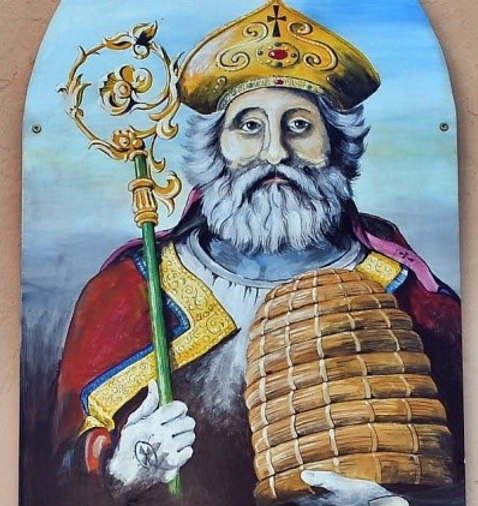
Have you ever wondered why St. Valentine is the patron saint of beekeepers? This fascinating article delves into the intriguing history behind this connection and uncovers the mystique surrounding this unlikely pairing. From ancient traditions to the symbolism of bees, discover the intriguing reasons behind St. Valentine’s association with beekeepers, and how these small creatures have come to be a significant symbol of love. Get ready to be captivated by the fascinating tale of St. Valentine and his surprising link to the world of beekeeping.
Background of St. Valentine
St. Valentine is widely recognized as the patron saint of love and affection, celebrated every year on February 14th as St. Valentine’s Day. However, there is a lesser-known association that St. Valentine holds with beekeepers. This connection dates back to ancient times and is rooted in the significance of bees and honey in various cultures and belief systems.
Origins of St. Valentine
The origins of St. Valentine’s Day can be traced back to the third century in Rome. It is believed that during the reign of Emperor Claudius II, a Christian priest named Valentine was martyred for his faith. Despite the persecution of Christians at the time, Valentine continued to secretly perform Christian weddings and help couples in love. His compassionate and selfless acts led to his association with love and affection.
Celebration of St. Valentine’s Day
Valentine’s Day has evolved over the centuries into a celebration of romantic love. Today, people exchange cards, gifts, and tokens of affection with their loved ones, expressing their feelings and appreciation. While the connection to love and romance is well-known, the connection to bees and beekeepers may come as a surprise to many.
Association with Beekeepers
Ancient Beliefs about Bees
Bees have fascinated humanity for centuries, and their importance in various ancient cultures cannot be understated. In ancient Egypt, bees were believed to be the tears of Ra, the sun god, descended upon the earth. They were revered as symbols of fertility, resurrection, and the afterlife. The ancient Greeks and Romans associated bees with the goddess Aphrodite (Venus) and believed that consuming honey could bring sweetness and love to one’s life.
St. Valentine as a Protector of Bees
St. Valentine’s connection with bees stems from his role as a protector of nature and his association with love. According to legends and traditions, St. Valentine valued the natural world and recognized the importance of bees and their role in pollination and honey production. He is said to have prayed for the well-being of bees and their hives, protecting them from harm and ensuring their prosperity.
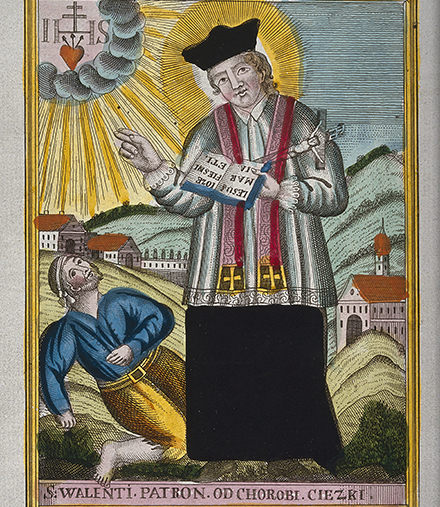
Legend of St. Valentine and Bees
St. Valentine and the Beekeeper
One popular legend surrounding St. Valentine and bees tells the story of a beekeeper who sought the saint’s help. The beekeeper’s hive had been destroyed by a storm, causing great distress as bees were essential for the pollination of crops and the production of honey. Desperate, the beekeeper approached St. Valentine, who lifted the spirits of the devastated beekeeper and blessed his remaining bees. Miraculously, the beekeeper’s hive was soon restored, and his bees thrived once more.
Miraculous Healing Powers
In addition to the restoration of the beekeeper’s hive, St. Valentine was also believed to possess the power to heal bee stings. It was said that those seeking relief from the pain and swelling caused by bee stings would pray to St. Valentine for healing. This association further solidified his connection with bees and beekeepers, as he was seen as a protector and healer of both.
Symbolism of Bees and Honey
Biblical References
Bees and honey hold symbolic significance in various religious texts, including the Bible. In the Old Testament, “the promised land” is described as a land flowing with milk and honey, symbolizing abundance and prosperity. Bees are also mentioned in the book of Judges, where Samson discovered a hive of bees in the carcass of a lion, and their honey provided nourishment and strength.
Ancient Mythology
In ancient Greek and Roman mythology, bees were associated with the divine and were believed to be messengers between the gods and humans. The Greek god Apollo, known as the god of music, poetry, and healing, was often depicted with bees. The nymph Melissa, whose name means “honey bee,” was said to have fed Zeus honey, saving him from a poisoned drink.
Christian Symbolism
In Christian symbolism, bees represent diligence, order, and community. Bees work together in harmony to build and maintain their hives, mirroring the ideal Christian community. Honey is often seen as a symbol of the sweetness of Christ’s teachings and the spiritual nourishment provided by the Word of God.
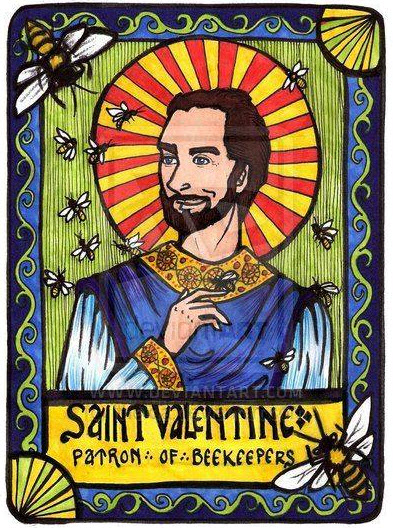
St. Valentine’s Connection with Love and Fertility
Valentine’s Day
St. Valentine’s Day has long been associated with love and romance. The celebration of this day can be traced back to the Middle Ages, where it became a time for exchanging love letters and tokens of affection. While the origins of Valentine’s Day are not directly linked to St. Valentine’s association with bees and beekeepers, the celebration of love has become intertwined with his story.
Fertility Rituals
In ancient times, many cultures celebrated fertility rituals during the month of February. It was believed that the arrival of spring and the renewal of nature were closely connected to fertility and the ability to create life. Bees, with their crucial role in pollination, were seen as symbols of fertility and were often associated with these rituals.
Love Charms
Honey and beeswax were also known for their supposed ability to enhance fertility and desire. In medieval times, people would consume honey-based potions and wear love charms made from beeswax to attract a suitable partner or enhance their romantic relationships. This belief further solidified the connection between bees, honey, and love.
Cultivation of Bees and Honey
Role of Beekeepers
Beekeepers play a vital role in the cultivation and preservation of bees and honey. They dedicate their time and expertise to maintaining beehives, ensuring the well-being of the bees, and harvesting the precious honey produced by these diligent insects. Their work not only supports the survival of bees but also contributes to the agricultural industry through pollination.
Importance of Bees in Agriculture
Bees are essential for pollinating a wide variety of crops, fruits, and vegetables. Without their diligent work, many plants would not produce the fruits and seeds necessary for food production. Beekeepers, by caring for and cultivating bees, indirectly support the agricultural industry and secure the food supply for countless people around the world.
Medieval Beekeeping Practices
In medieval times, beekeeping was an important occupation, and beekeepers had specialized knowledge and practices. They constructed skeps, dome-shaped structures made of woven straw or wicker, to serve as beehives. These skeps were carefully maintained, and the honey was harvested by carefully removing the honeycomb without harming the bees. Medieval beekeeping practices were passed down through the generations and contributed to the long-standing traditions associated with bees and honey.
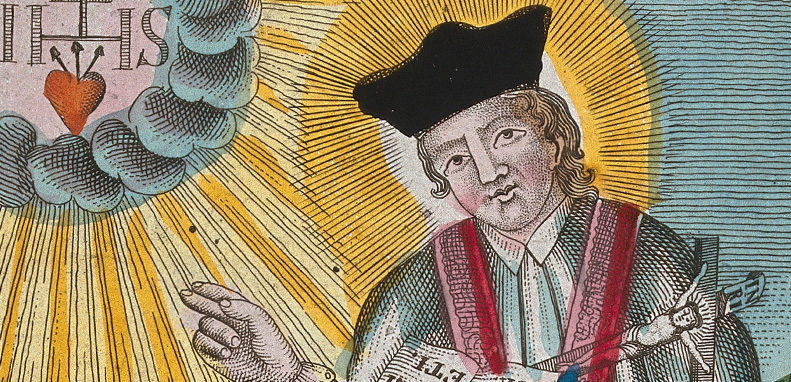
Beekeeping Traditions on St. Valentine’s Day
Blessing of Bees
On St. Valentine’s Day, beekeepers in some regions continue the tradition of blessing their bees. They gather around the beehives, recite prayers, and ask for the protection and well-being of the bees throughout the year. This ritual is a way for beekeepers to honor St. Valentine and express gratitude for the contribution of bees and honey to their livelihood.
Setting up Beehives
St. Valentine’s Day is also a popular time for beekeepers to set up new beehives or expand existing ones. The timing coincides with the arrival of spring when bees become more active and embark on their critical role in pollination. By beginning or expanding their beekeeping endeavors on this day, beekeepers symbolically connect their work with the legacy of St. Valentine and the importance of bees in the natural world.
Honey as a Symbol of Love
honey is often exchanged as a gift on St. Valentine’s Day, symbolizing sweetness, love, and affection. Some couples incorporate honey into their celebrations, enjoying honey-based treats or even having honey tastings to savor the various flavors and nuances of this natural sweetener. This practice not only honors the association between St. Valentine and bees but also celebrates the joys of love and companionship.
Modern-Day Celebrations
Feast Day of St. Valentine
In addition to the rituals and traditions specific to beekeepers, St. Valentine’s Day continues to be celebrated as a feast day dedicated to love and affection. People exchange greeting cards, flowers, chocolates, and other expressions of love with their partners, family members, and friends. The day has evolved into a global celebration of love, uniting people from various cultures and backgrounds.
Beekeeping Festivals and Events
Across the world, beekeepers and honey enthusiasts come together to celebrate St. Valentine’s Day through various beekeeping festivals and events. These gatherings showcase the importance of bees and honey and highlight the invaluable work of beekeepers. Attendees can participate in honey tastings, learn about beekeeping techniques, and engage in discussions about sustainable beekeeping practices.
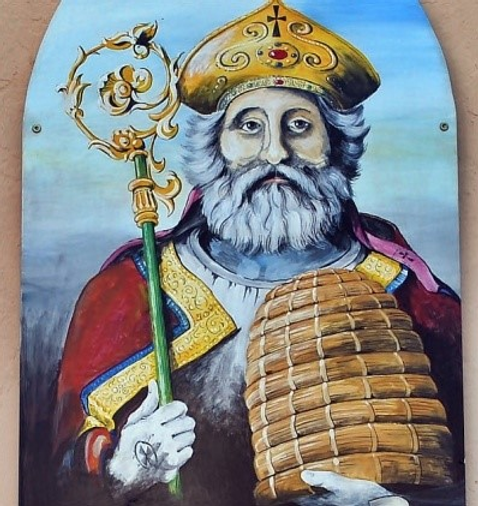
Conclusion
The enduring connection between St. Valentine and beekeepers illustrates the deep-rooted significance of bees and honey in our lives. From ancient beliefs and mythology to religious symbolism and modern-day celebrations, bees have continuously been associated with fertility, love, and the preservation of nature. The patronage of St. Valentine over beekeepers serves as a reminder of our appreciation for the natural world and the importance of sustainability and harmony with nature. So, this St. Valentine’s Day, let us not only celebrate love and affection but also reflect on the vital role that bees and beekeepers play in our ecosystems and our lives.